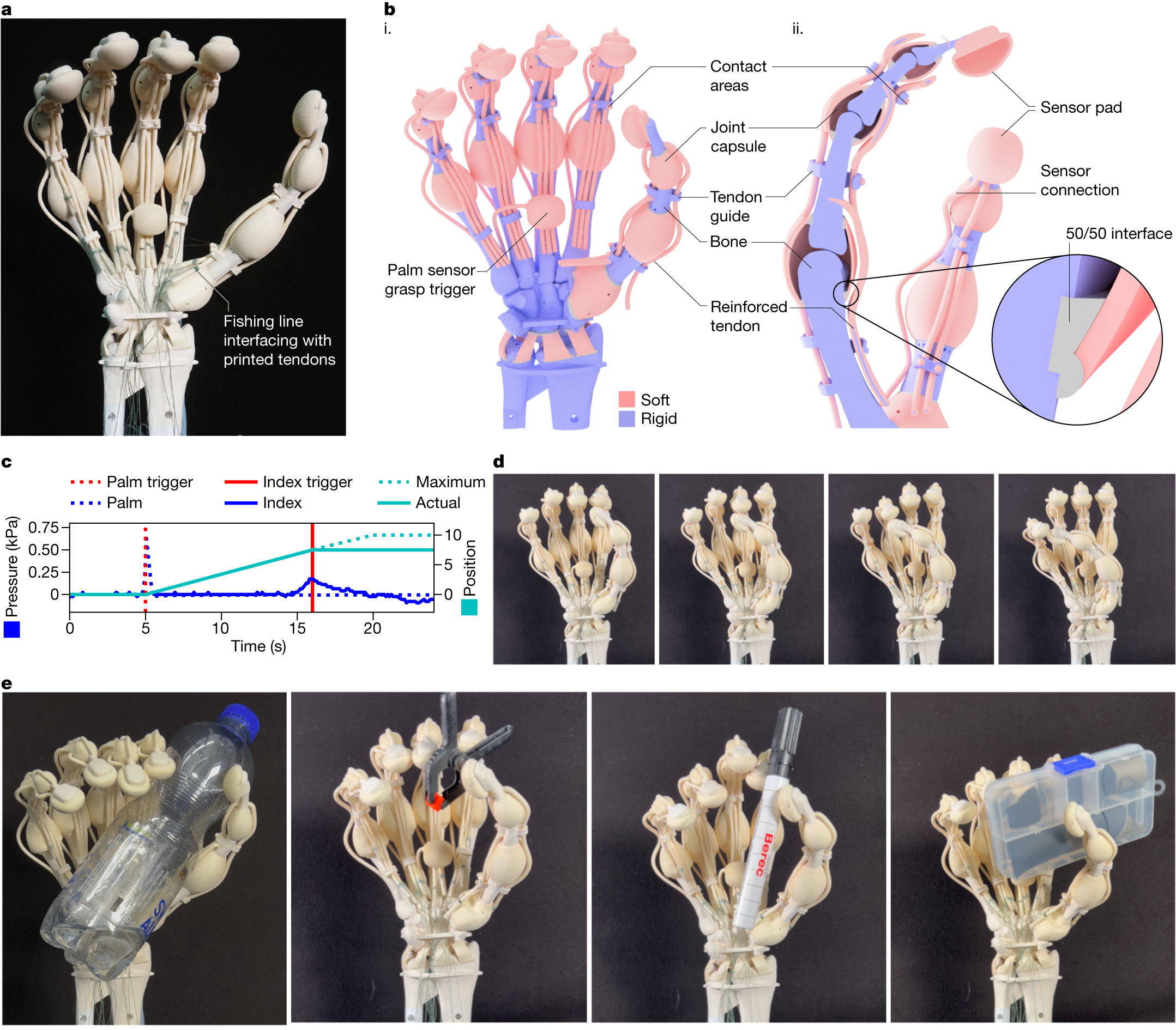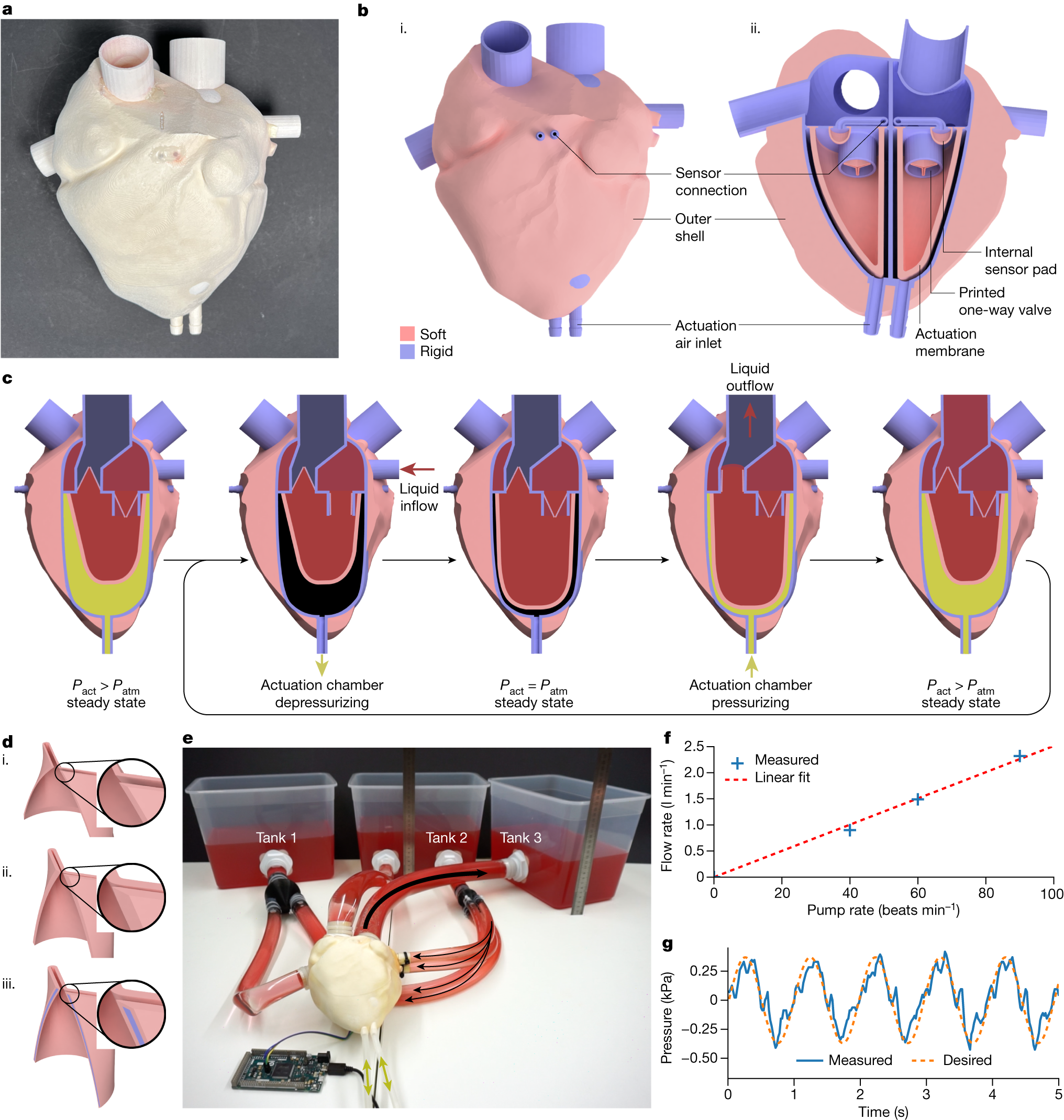the real deal is that they printed it in one go. that functional hand, printed in one piece, with all the tubes etc
Technology
This is a most excellent place for technology news and articles.
Our Rules
- Follow the lemmy.world rules.
- Only tech related content.
- Be excellent to each another!
- Mod approved content bots can post up to 10 articles per day.
- Threads asking for personal tech support may be deleted.
- Politics threads may be removed.
- No memes allowed as posts, OK to post as comments.
- Only approved bots from the list below, to ask if your bot can be added please contact us.
- Check for duplicates before posting, duplicates may be removed
Approved Bots
next: the robots 3d printing their own limbs
This is the best summary I could come up with:
Unlike humans and animals, robots do not have real bones or the flexible tissues that connect them; they have artificial links and joints made of materials like carbon fiber and metal tubes.
A team of researchers from the Swiss Federal Institute of Technology (ETH) Zurich and US-based startup Inkbit have figured out a way to 3D print the world’s first robotic hand with an internal structure composed of human-like bones, ligaments, and tendons.
“These have very good elastic properties and return to their original state much faster after bending than polyacrylates,” said Katzschmann, one of the authors on a new paper that describes the new method.
“This visual inspection makes the print process fully contactless, allowing for a wider range of possible polymers to be deposited.
We, for example, printed with thiol-based polymers because it enabled us to create UV-light and humidity-resistant structures,” Katzschmann told Ars Technica.
The high resolution, suitable material properties, and their long lifetime make prints from the VCJ system very useful for both research and commercial applications,” Katzschmann told Ars Technica.
The original article contains 956 words, the summary contains 175 words. Saved 82%. I'm a bot and I'm open source!
oh hell yeah, now thats a robot hand with some style.
There is something oddly terrifying in those images. Straight uncanny valley. More images from the paper:

